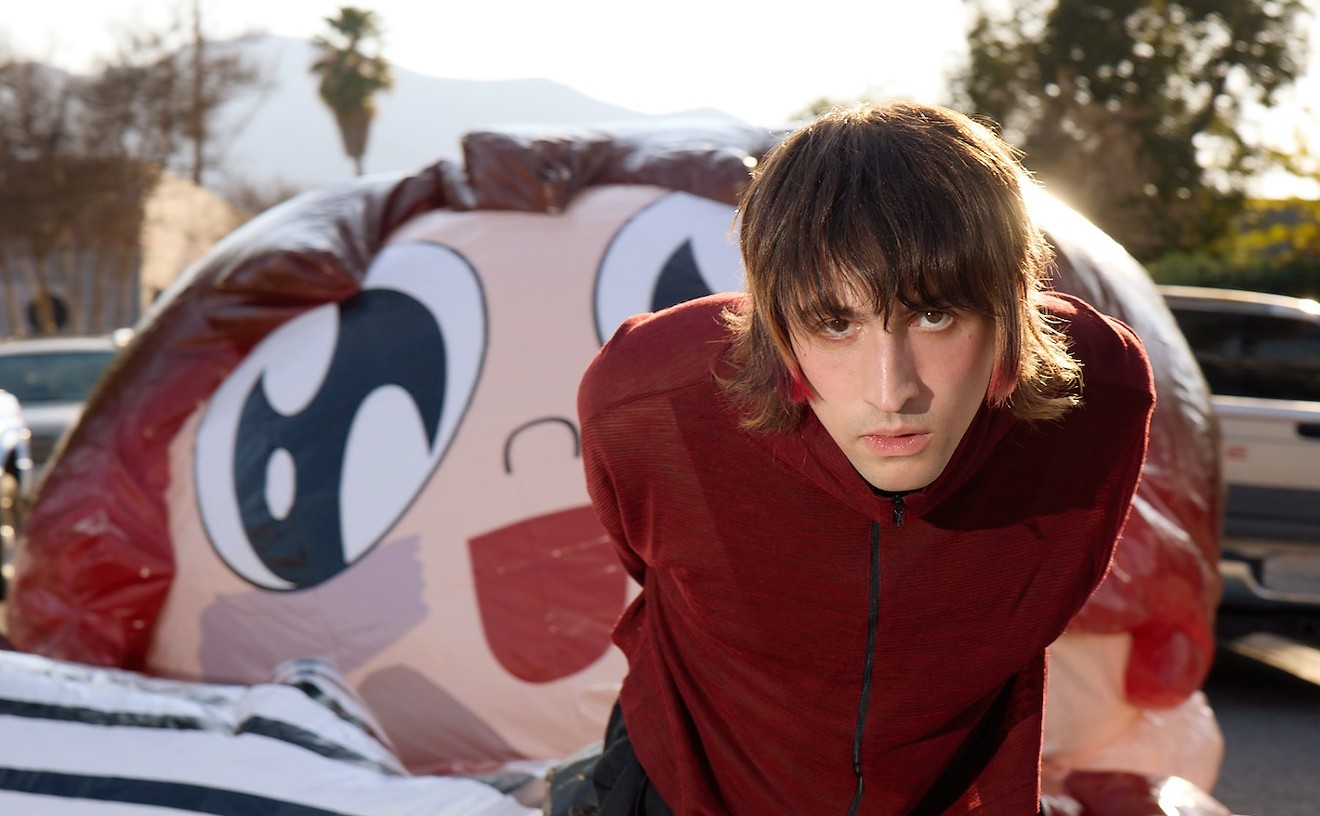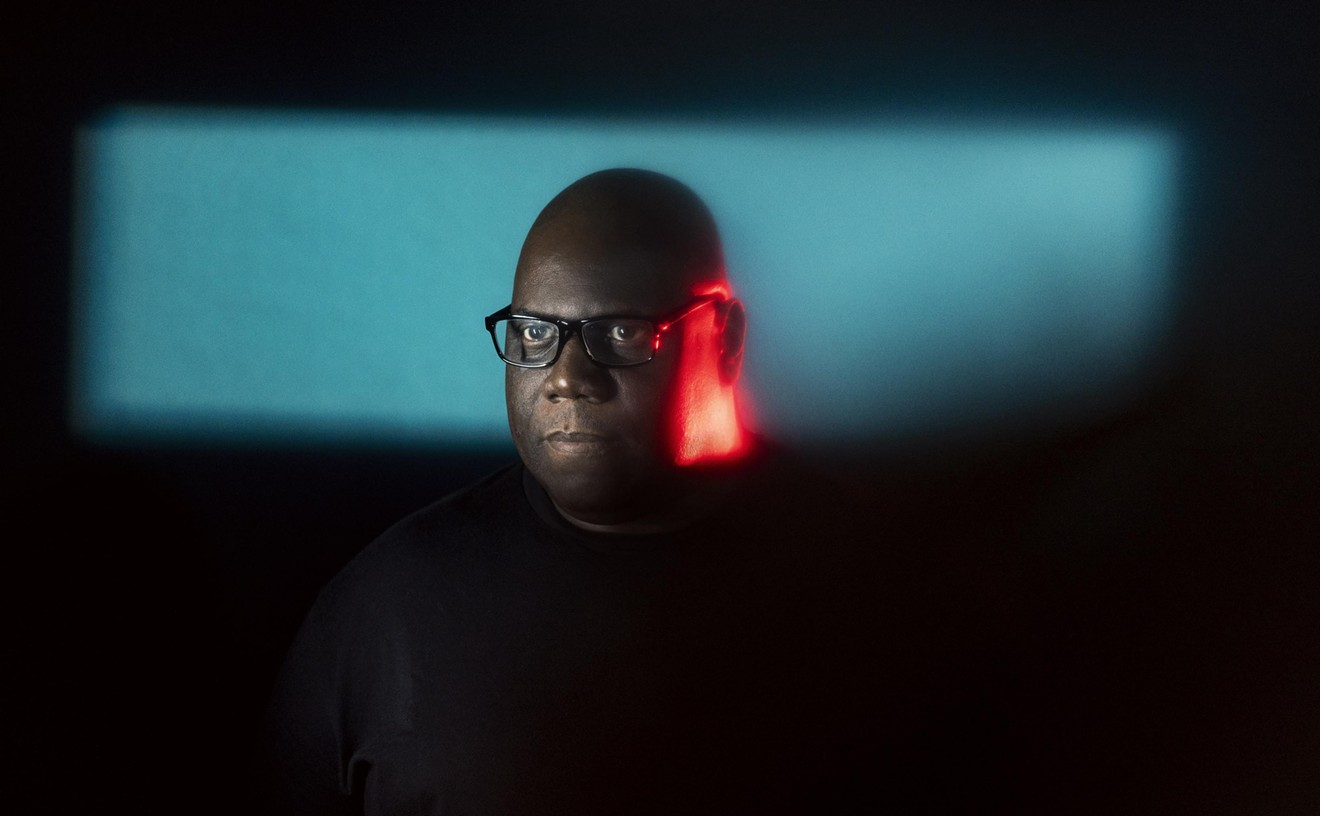Not that Gian Marco was starting from scratch. Son of famed Peruvian singer/composer Joe Danova and singer/actress Regina Alcóver, he made his television debut singing at the age of two. As the little tyke grew, appearing onstage and onscreen through his teens, then releasing five CDs through his twenties, Peru just wasn't big enough. "It would have been great to be able to accomplish the things that I'm accomplishing here in my own land," he laments, nestling a guitar in his lap during an interview at the National Hotel, his bicep bulging with tattoos. "I wanted to develop as a professional and as a human being. To learn new things."
On Peruvian television, the aspiring star watched reports puffing Emilio Estefan, Jr., as a starmaker. Determined to make contact, he began to make frequent trips to Miami in 1998, staying at a hotel on Le Jeune Road near the airport that offered a single room and the use of a car for $90 a day. "It was a crappy car, but it was a car," he laughs. What did he do? "I knocked on doors. I peered through windows. I walked in through the kitchen."
Opening the kitchen door was current Crescent Moon president Mauricio Abaroa, who met the Peruvian in his capacity as director of LARAS, the Latin Grammy organizers. Abaroa, who also did duty as manager to Luis Miguel, liked what he heard and passed the material on to his buddy and future employer Estefan. The timing couldn't have been better. El padrino's relationship with earlier Andean import Kike Santander was just beginning to cool. Emilio was looking for a new songwriter's name to attach to his own. Here was a kid eager to do whatever it took to break on the international scene: The pair is credited with writing a number of songs together, including the theme for the Beijing 2008 Olympics and the post-Sept. 11 tribute "El Ultimo Adios."
"Emilio is a guy who goes 1000 miles an hour," says Gian Marco of his patron's collaboration. "He'll sit down with me and let loose a bunch of ideas. I go along putting everything in order and setting it to music." Noting Shake's skepticism, he insists, "I've seen Emilio in every mix. I've seen him move controls!"
Ultimately the Peruvian is most impressed by what his colleagues at Crescent Moon don't do. "I came from Peru with a career already made, so I was afraid that when I reached an international market, I would be told, 'Gian Marco, you've got to do this,'" he admits. "They left me very free to do whatever I wanted to do."
Judging from A Tiempo, what he wanted to do was update the sound of the Latin-American nueva cancion movement of the Sixties and Seventies, blunting the sharp edges of the protest genre while retaining the cultivated bohemia of the man-with-a-guitar formula. Unadorned during an acoustic showcase at the now-defunct Café Nostalgia, his voice cracked and crackled as though trying to control emotion. Unfortunately all too often on the recorded work, overly lush production obscures Gian Marco's raw power. The most successful tune is the simplest, "Se Me Olvidó" ("I Forgot"), a story of love ended badly accompanied by a Peruvian wooden box. Gian Marco's sarcastic lyrics on this song and others hint that he might chafe a bit at the saccharine sentiments he is hired to write for fellow Latin pop stars. "There are other ways to be romantic," he points out. "'I Forgot' is the most dignified way of telling someone to go to hell."










